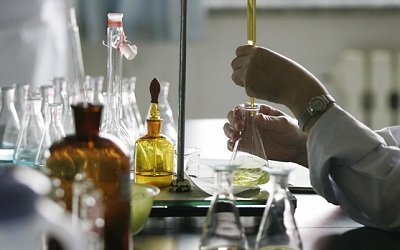Inside BENEO’s new pulse plant: pioneering sustainable protein from faba beans
India is the second largest producer of food in the world after China, and is promising destination for processed food products, and provides varied opportunities for the global players to gain their foothold. Moreover, Indian food processing industry is an important link that connects agriculture and industry which collectively is the fifth largest sector in the country. The nutraceuticals sector in India is currently estimated expected to grow to $6.1 billion by 2020.
But here lies the challenge; with an opportunity of this nature, the sector is also posed with key infrastructural challenges that are growth deterrents. Aspects such as modern logistics solutions, technology, testing and certification need increased attention to provide the much needed impetus to the growth of the sector in the country.
The testing and certification landscape in India is still evolving with developed markets being considered as a reference point. If quality has to be an embodiment of ‘Made in India’ there is an imperative scope to grow the existing testing and certification infrastructure within the country. Globally, contamination of most of the processed food occurs from processing machineries and improper handling. Inefficient supply chain and food contamination outbreaks are fueling the growth of the food testing sector. Such spates and chances of spoilage can be mitigated at an elementary level.
Food producers, manufacturers, suppliers and retailers each play an integral role in the supply chain; they are the ones who can decide the path towards ensuring quality and safety of food. It hence becomes imperative for every stakeholder in the food supply chain to ensure their food product is tested and certified by an approved food testing laboratory. Analysis of products conducted at an early stage could prevent food safety incidents and food recalls, thereby protecting consumers and brand reputation. For global brands, irrespective of the location of production, the processes followed to ensure the safety of the end product are standardised and are therefore more sought after.
Foreign-made food products conforming to Indian food regulations are flooding the Indian market while Indian food products find it difficult to ensure they comply with the laws and regulation applicable in a country where these have to be exported. In order to sustain, Indian food producers must ascertain that their product is competitive at the global platform. Third party testing and certification bodies play a crucial role in empowering such producers.
As per Marketsandmarket survey, global food safety testing is projected to reach a value of $16.1 billion by 2020, at a CAGR of 7.4% from 2015. While a significant share of this market will be from developed countries, developing economies like India will witness faster growth rates due to fast changing regulatory environment and growth in Indian food manufacturing. The food industry is also expected to change the focus to health and safety aspects of products to gain the confidence of consumers. These trends will support more R&D and investments to produce safer food products and third party certification and testing to endorse the quality.
If local and international companies can be assured of a robust testing and certification infrastructure within the country, it will accelerate their process of setting up in India and add value to every aspect of producing food here.
The testing and certification infrastructure within the country can be upgraded as per industry requirements through public private partnerships (PPP). Such partnerships ensure that the environment to operate businesses is conducive from a regulatory as well as a business perspective. The Food Safety and Standards Authority of India (FSSAI) has laid procedures and guidelines in the Food Safety and Standards Act, 2006 for recognising few independent accredited laboratories in the country. This has helped bridge the existing demand supply gap in the country. Some of the direct benefits of a robust infrastructure include:
• Larger volumes of FDI in food processing and neutraceuticals
• Increase in the share of food in exports from the country
• Improvement in the food safety landscape within the country
• Employment opportunities
• Hiked contribution of food processing to the GDP
Third party facilities offer services for testing of food products and auditing the entire food unit. Food analysts and auditors ensure that small scale manufacturers, retailers, distributors and exporters understand the need to comply with food safety standards and quality control procedures in a comprehensive manner. Most stakeholders currently operate independently where the challenges in day-to-day operations and implementation of the other stakeholders are not considered. With Indian businesses, opening up to global markets the demand for services that help overcome these challenges faced by an increasingly globalised business landscape. The need of the hour for businesses, regulators and certification agencies like TÜV SÜD is to collectively come to a consensus for effective implementation of food safety systems.
A collaborative approach towards ensuring the safety of food is key to the growth of food businesses in India. India has the potential to be a hub for not just manufacturing but also business intelligence in the years to come and the key to success lies in a robust testing and certification infrastructure.

